15 Ways to Improve Your Credit Score in 2022

15 Ways to Improve Your Credit Score in 2022
It doesn't have to be complicated, but it won't happen overnight
If the sight of your credit score fills you with dread and apprehension, it doesn't have to stay that way. Studies have shown that there are millions of Americans currently struggling under the weight of credit card debt, and if you fit into this category, know that you're not alone. Credit card debt is one of many factors that can impact your credit score, and getting out of debt is a vital step to building credit responsibly and improving your score over time.
Whatever your current situation or the state of your credit, here are 15 simple ways to improve your credit score starting right now.
5 Stocks Under $49
Presented by Motley Fool Stock Advisor
We hear it over and over from investors, “I wish I had bought Amazon or Netflix when they were first recommended by The Motley Fool. I’d be sitting on a gold mine!" It's true, but we think these 5 other stocks are screaming buys. And you can buy them now for less than $49 a share! Click here to learn how you can grab a copy of “5 Growth Stocks Under $49” for FREE for a limited time only.
Previous
Next
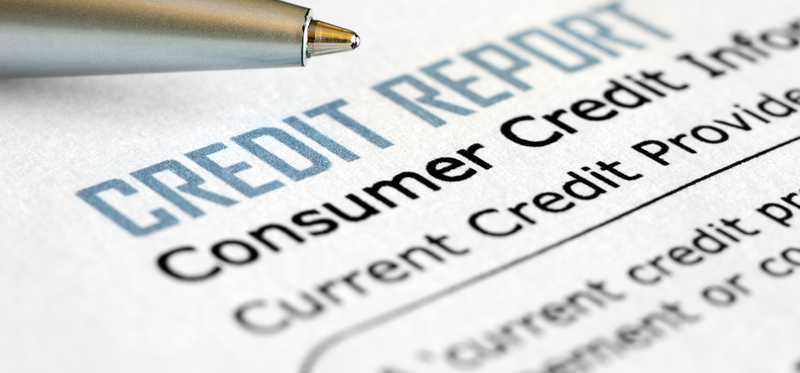
1. Assess the current state of your credit by reviewing your free annual report
If you're not sure what your credit score currently looks like, there's a very easy way to resolve that issue. Each of the three main credit reporting bureaus (Experian, Equifax, and TransUnion) allow you to request one free credit report annually. In doing so, you can not only assess the state of your credit but check for any incorrect information that might be adversely impacting your current score.
ALSO READ: Can You Invest in Real Estate With a Low Credit Score?
Previous
Next

2. Don't skip payments
Your payment history is one of the single most important factors that contributes to your overall credit score. Even if you have outstanding credit card debt right now that you are working to whittle down, you should always stay up-to-date with your payments. Skipping payments adversely impact your credit score, and you could accumulate significant interest over time that makes your balance even higher.
Previous
Next
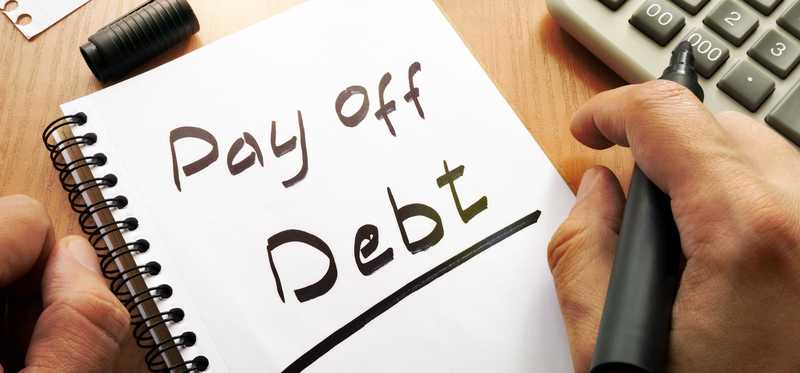
3. Get rid of credit card debt
Credit card debt can and will torpedo your credit score, in addition to weighing down other areas of your financial health. Credit cards are a tool, and when used wisely and responsibly, they can certainly be part of a robust financial plan. That being said, credit cards can also make it easy to give in to the urge to spend money you don't have or spend more than you can reasonably pay back in a billing cycle.
Don't beat yourself up if you currently are struggling to pay down your credit card debt. Instead, right now is the time to implement a payment plan to get yourself out of debt and achieve your more financially free self. If you're not able to pay off all your credit card debt at once, set a target date by which you can reasonably pay down what you owe.
Whether it's a six-month plan, a 12-month plan, or more, set a monthly or biweekly payment plan for yourself and stick to it. In addition, always make sure that you pay at least the minimum amount required for each credit card you hold every month. Failure to pay at least the minimum balance can tack additional interest charges on to what you owe and significantly lengthen your debt repayment plan.
ALSO READ: The Complete Guide to Understanding Your Credit Score
Previous
Next

4. Pay off your balance in full each month
Your goal should always be to pay off the balance you owe for each credit card you use each and every month. By keeping your balance low enough that you can pay off what you owe each time the bill comes due, you can build a robust payment history that positively impacts and elevates your credit score over time. Keeping your credit card balance far below your credit limit and paying it off consistently will ensure you have a low credit utilization rate, which also directly affects your credit score.
Stretching your balance to its limits and failure to pay off your balance in full each month will not only cripple you with debt but hamper your ability to gain approval for other types of loans or additional credit in the future.
Previous
Next
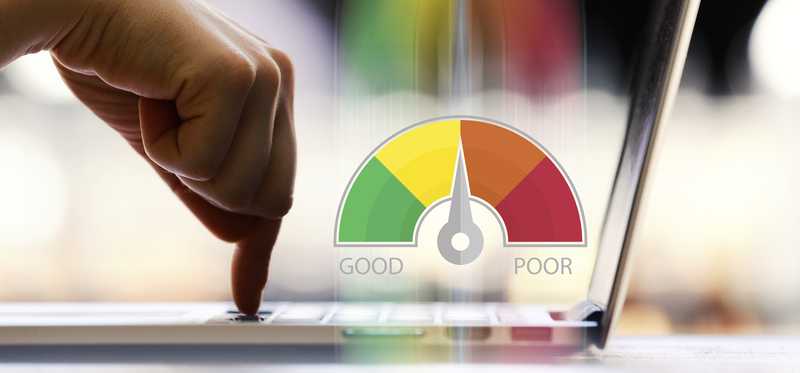
5. Even if you can't pay off your entire balance right now, never pay less than the minimum balance owed each billing cycle
If you're in a situation where you simply can't afford to pay down the entirety of the balance or balances you owe on your credit cards, there is still one thing you must never do as a credit card user: pay less than the minimum balance that you owe for each billing cycle.
Why is it so important to pay at least the minimum balance that you owe on your credit cards each month? For one, paying less than the minimum balance will essentially count as a skipped payment. Your credit card company may charge you a late payment fee, in addition to additional interest you will likely owe on your balance. In short, you may be left with an even larger balance than before, and your credit score could decline single or even double digits before the next billing cycle.
The moral of the story here is, even if you are in the process of paying down credit card debt and are unable to pay the balance at once, always pay at least the minimum balance to ensure you don't incur any late payment fees or experience additional dings to your credit score.
5 Stocks Under $49
Presented by Motley Fool Stock Advisor
We hear it over and over from investors, “I wish I had bought Amazon or Netflix when they were first recommended by The Motley Fool. I’d be sitting on a gold mine!" It's true, but we think these 5 other stocks are screaming buys. And you can buy them now for less than $49 a share! Click here to learn how you can grab a copy of “5 Growth Stocks Under $49” for FREE for a limited time only.
Previous
Next
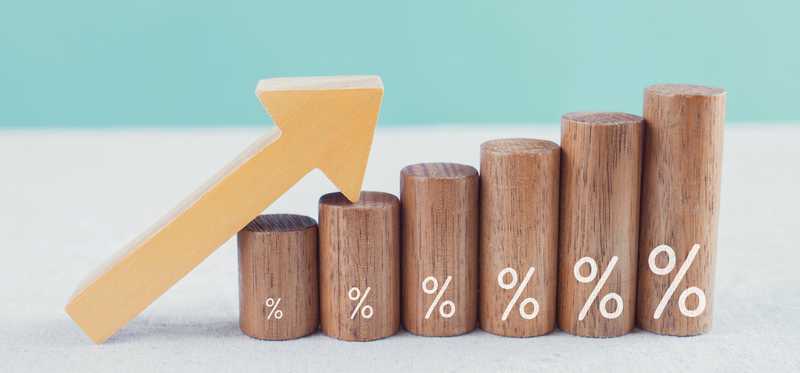
6. If you have accumulated substantial debt that you need time to pay off, focus on the highest-interest credit card debt first
While consumers should aim to never accumulate a higher credit card balance than they can pay off in a given month, the reality is that many people carry substantial debt, sometimes for years at a time. In certain circumstances, this credit card debt is simply the result of reckless spending, while in others, dire financial straits may push consumers to rely on credit cards to stay afloat. Whatever the circumstances, if you are currently working to implement a debt repayment plan, it's important to prioritize the worst forms of debt.
The interest rate assessed on credit card debt very much depends on the type of card in question and the credit card issuer. If you are working to pay down credit card debt owed on multiple cards, focus on the ones assessing the highest rates of interest each month first and work your way down.
ALSO READ: Why Checking Your Credit Score Isn't Enough to Protect Your Identity
Previous
Next

7. Keep your credit card utilization ratio down
We talked briefly about your credit card utilization rate earlier, but it's important to stress that this is another key factor that goes into determining your overall credit score. In a perfect world, you should aim to never utilize more than 30% of your credit card limit in any given month. In keeping your credit card utilization rate low, this signals to lenders that you are not only a responsible user of the credit you've been given but also could be eligible for additional credit limit raises in the future.
Now, this doesn't mean that you should keep on carrying a balance in perpetuity as long as it remains below 30% of your overall credit limit. You should still always target paying down your balance in full every month.
Previous
Next

8. Schedule your credit card payments
It's no secret that skipping payments can cause your credit score to plummet, but there's one very easy way to avoid this issue. Scheduling automatic payments in advance for each of the credit cards you owe balances on can ensure that when the payment date comes around, you can rest assured that your bill will be paid. If you struggle to remember when each of your credit card bills is due, consider setting up recurring calendar reminders for yourself to schedule those payments a few days in advance.
ALSO READ: Tori Dunlap Says This Credit Card Strategy Is a Complete Myth
Previous
Next

9. Minimize hard credit inquiries
It may seem counterintuitive, but checking your credit score can actually lower it. Now, if you look up your credit score yourself, that shouldn't impact your score. This is what is known as a soft credit check. On the other hand, if you are seeking another line of credit, this may lead to what is known as a hard credit inquiry.
These types of inquiries will impact your credit score in the near term, sometimes for a few years. This doesn't mean you shouldn't ever apply for a loan or another form of credit, but it is worth bearing in mind that you should keep hard credit inquiries to a minimum.
Previous
Next
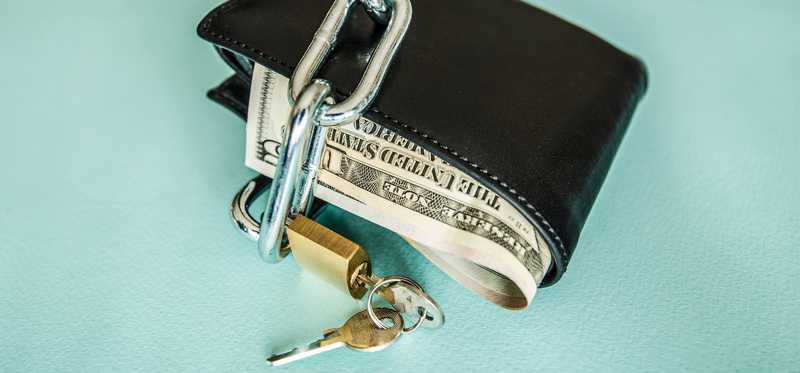
10. Don't spend more than you can pay off for a billing cycle
Credit cards can provide a range of benefits, including the ability to build a robust credit score while generating rewards and other perks that you can use to pay for things like travel. On the other hand, credit cards can also be ripe for misuse.
If you want to build a robust payment history and keep your credit card utilization low, two major factors that go into building your credit score, one simple way to achieve this is to never spend more than you can pay off for that month. Consistently approaching credit card usage in this way is how you build and maintain an excellent credit score over time.
5 Stocks Under $49
Presented by Motley Fool Stock Advisor
We hear it over and over from investors, “I wish I had bought Amazon or Netflix when they were first recommended by The Motley Fool. I’d be sitting on a gold mine!" It's true, but we think these 5 other stocks are screaming buys. And you can buy them now for less than $49 a share! Click here to learn how you can grab a copy of “5 Growth Stocks Under $49” for FREE for a limited time only.
Previous
Next

11. Don't seek new lines of credit if you're currently in credit card debt
In thinking about credit card utilization rates, you might be wondering whether applying for a new line of credit could help to improve your usage ratio, particularly if you have one or more outstanding balances. While this might technically improve your credit card utilization rate (at least temporarily) it's highly inadvisable to seek new lines of credit if you're currently in credit card debt.
Even if you have to implement a repayment plan for yourself because of the outstanding balance you owe, it's better to faithfully make those payments, reduce your balance over a period of time, and build up your score from there than to apply for new credit that may lead you into further debt.
Previous
Next

12. Apply for a boost to your credit card limit (only in certain situations)
If you are a responsible credit user and habitually pay the balance you owe each month, applying for an increase to your credit card limit can actually help you build a robust payment history that lends itself to an enviable credit score. There are a few different ways to achieve an increase to your credit card limit.
Sometimes, if you are already in a position where you have been consistently paying off your credit card each month and your credit score is in good shape, your credit card issuer will automatically boost your credit card limit from time to time. The other way is to apply directly for an increase to your credit card limit with your card issuer.
Previous
Next

13. Don't cancel a credit card just because you haven't used it recently
If you currently have several credit card accounts, you might be considering whether it's time to close one or more down. There are certainly valid reasons to cancel a credit card, particularly if you are struggling to use your cards wisely or the fees attached to a certain account are particularly high.
However, canceling a credit card may impact your credit score, especially if it's for an account you've had open for a long time (the duration of your credit history is another defining factor for your credit score) or it will significantly lower your available credit limit, which would in turn impact your utilization rate.
This isn't just say you should never cancel the credit card, but consider carefully before you do, and don't simply close an account down because you haven't taken out the card in a while.
ALSO READ: Should You Open a Credit Card With Your Bank? Probably Not
Previous
Next

14. Use credit card rewards to your advantage
If you use credit cards with rewards attached to them, you can leverage these perks in a variety of ways. One of the most popular benefits of credit card rewards is to use them to pay for items at your favorite retailers or get discounts on travel or hotel stays. But another key benefit that many credit card issuers allow is to use credit card rewards to lower your balance.
If you use your rewards credit card or cards often, you might find yourself with a generous amount of rewards cash at the end of each month. Consider using that money to lower your balance, which can also reduce the amount of money you owe when the next payment cycle comes around.
Previous
Next
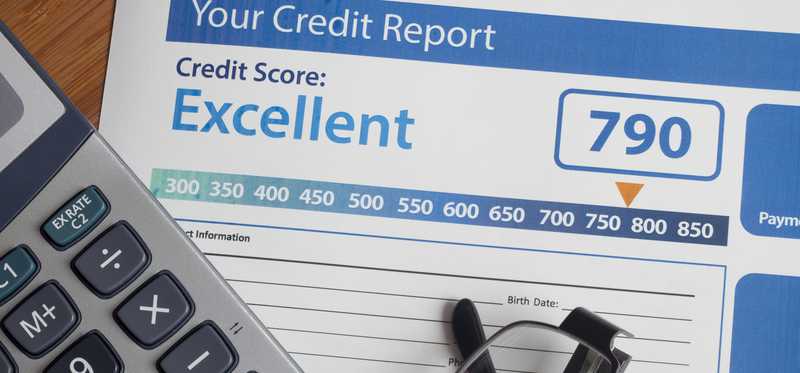
15. Ensure your credit report is free of mistakes
Sometimes, there may be an error on your credit report that is influencing your credit score. When you request your free annual report, make sure to check it thoroughly for any such mistakes or incorrect charges that might be listed.
Another way to stay up-to-date on all charges on your account so you can ensure that you catch any mistakes or even fraudulent charges immediately is to set up automatic texts and/or emails so that you are notified whenever a charge comes through on any of the cards that you own.
If you do ever notice a charge come through that you did not make yourself, notify your credit card company immediately so they can remove the charge, and in some cases, send you a new card.
Another way to protect your credit cards from fraudulent use is to enact a freeze on your credit. You can enact a credit freeze by contacting each of the three main credit reporting bureaus and requesting one for free.
Bear in mind that while doing so will shield your accounts from identity theft and stop someone from opening any new accounts in your name, you will also be unable to apply for new lines of credit while the freeze remains in place. If you enact a credit freeze and later decide to apply for a new line of credit, you will need to lift those freezes before doing so.
5 Stocks Under $49
Presented by Motley Fool Stock Advisor
We hear it over and over from investors, “I wish I had bought Amazon or Netflix when they were first recommended by The Motley Fool. I’d be sitting on a gold mine!" It's true, but we think these 5 other stocks are screaming buys. And you can buy them now for less than $49 a share! Click here to learn how you can grab a copy of “5 Growth Stocks Under $49” for FREE for a limited time only.
Previous
Next

Now is the time to align your financial goals
Whatever your financial goals are, whether they include investing more money in the stock market this year, saving for a trip, buying a house, or all of the above, building and maintaining an excellent credit score should be at the top of the list.
Having a good credit score will not only impact your ability to gain approval for additional lines of credit in the future but can also impact other areas of your financial and personal life. For example, a poor credit score could impact your ability to achieve approval for an apartment you want to rent, a mortgage for a house, or even land a job that you want.
If your credit score isn't where you currently want it to be, don't give up and don't be discouraged. Consistency and dedication to paying down any debt that you currently owe along with a regular payment history can help you achieve the credit score you desire.
The Motley Fool has a disclosure policy.
Previous
Next
Invest Smarter with The Motley Fool
Join Over Half a Million Premium Members Receiving…
- New Stock Picks Each Month
- Detailed Analysis of Companies
- Model Portfolios
- Live Streaming During Market Hours
- And Much More
READ MORE
HOW THE MOTLEY FOOL CAN HELP YOU
-
Premium Investing Guidance
Market beating stocks from our award-winning service
-
The Daily Upside Newsletter
Investment news and high-quality insights delivered straight to your inbox
-
Get Started Investing
You can do it. Successful investing in just a few steps
-
Win at Retirement
Secrets and strategies for the post-work life you want.
-
Find a Broker
Find the right brokerage account for you.
-
Listen to our Podcasts
Hear our experts take on stocks, the market, and how to invest.
Premium Investing Services
Invest better with The Motley Fool. Get stock recommendations, portfolio guidance, and more from The Motley Fool's premium services.